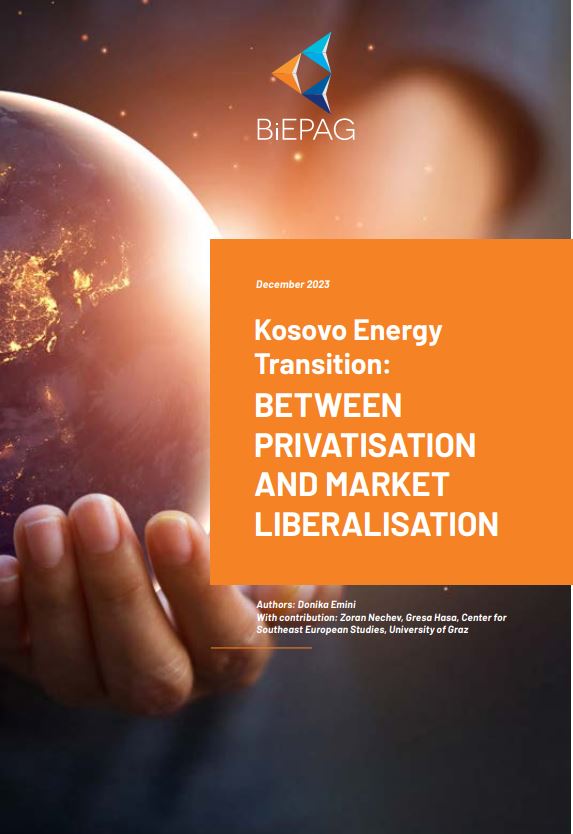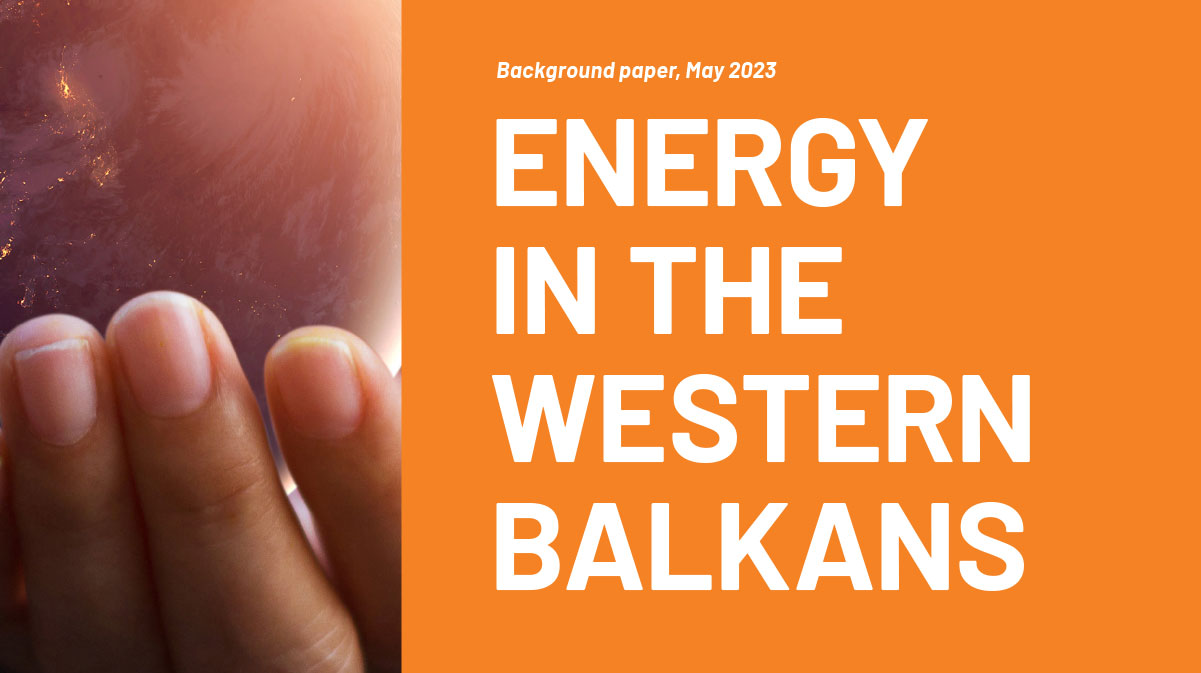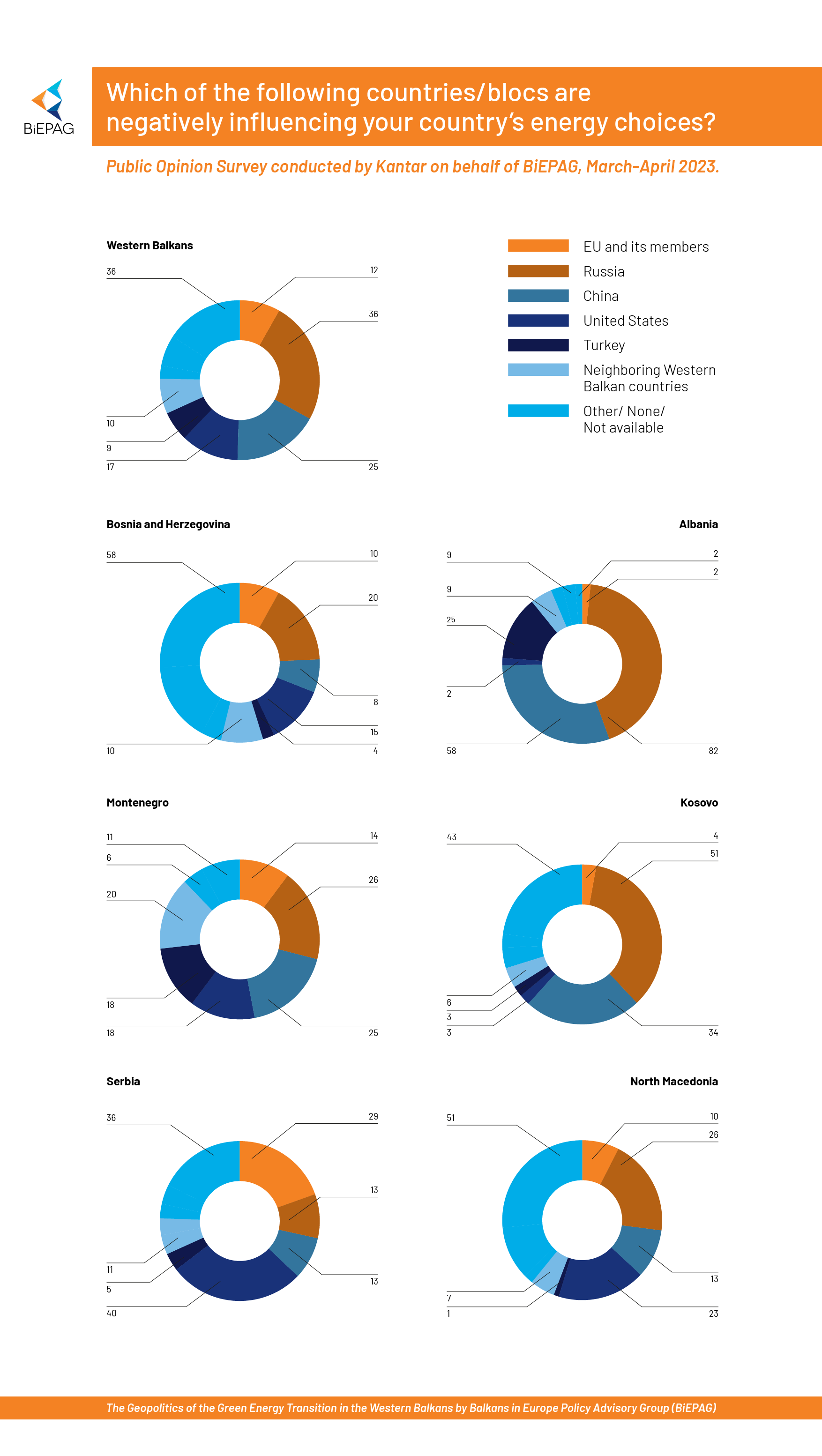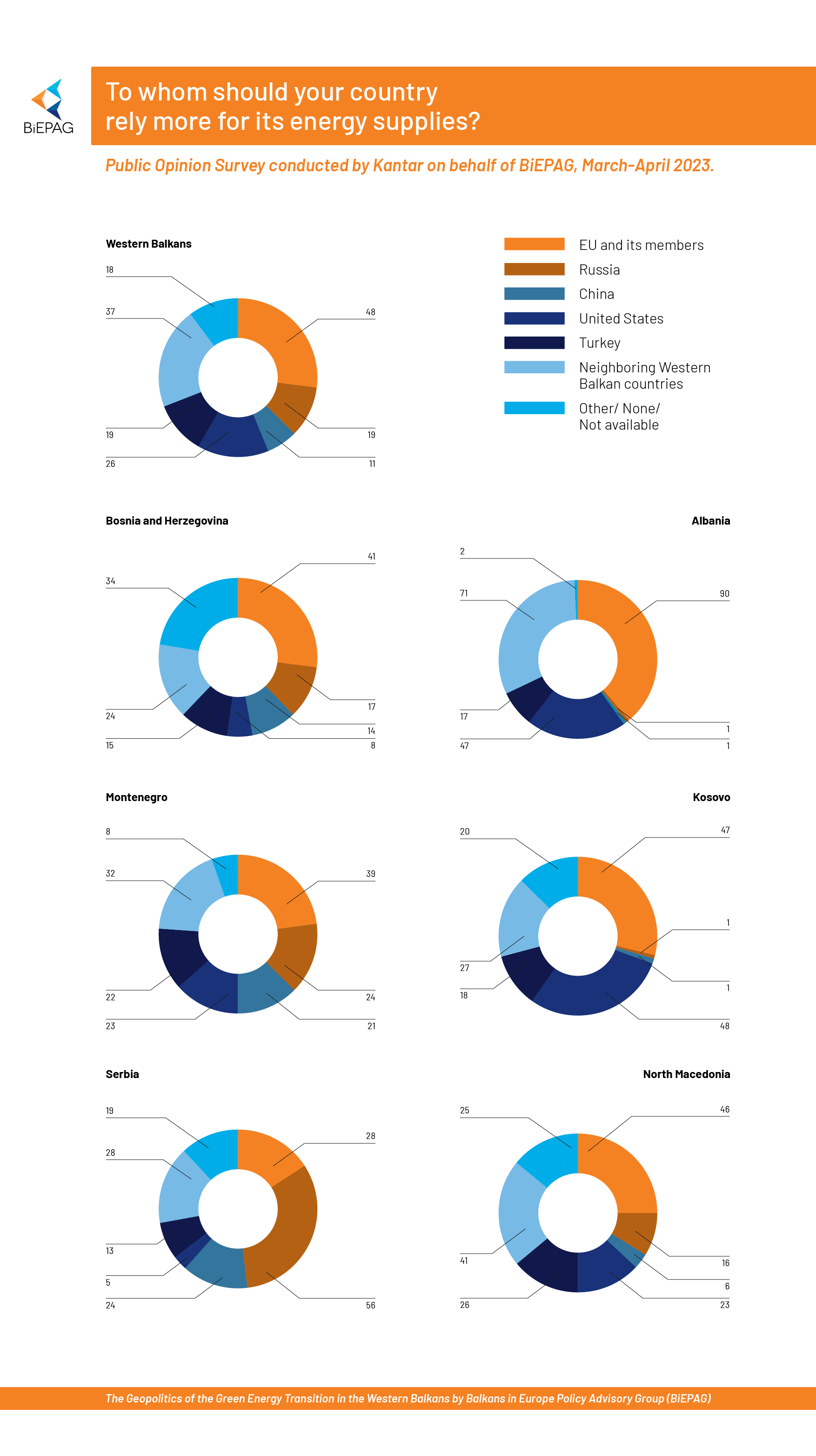Geopolitics of the Green Energy Transition in the Western Balkans



During the winter of 2021-2022, the energy sector in Serbia was hit by a perfect storm. While the global energy crisis was peaking in December 2021, a major block of the Nikola Tesla Thermal Power Plant near Belgrade broke down due to the poor quality of lignite coal being used (a primary energy resource for the country) and years of underinvestment and mismanagement of the publicly owned electricity company EPS.1 Faced with potential electricity shortages during winter, when the demand usually peaks, Serbia had to spend unprecedented amounts of money to buy electricity and coal..
Check the version in : English Serbian North Macedonia Albanian

The complicated administrative and legal frameworks that allow corruption and clientelism to flourish in Bosnia and Herzegovina (BiH) are obstacles to the country’s energy sector moving towards net-zero by 2050. Further, this study suggests that foreign actors are more a symptom than the cause of BiH’s slow energy transition. Their main motivation is not to exert political influence in BiH. Instead, they come to the country because of its abundance of natural resources, well-developed infrastructure, and production facilities, and to generate profits. They do not invest to take responsibility for sustainable natural resource management or energy production, but merely to secure concessions and quickly cash out before jumping to a new deal without delivering on their contractual obligations. BiH citizens in the meantime remain ill-informed and largely powerless..
Check the version in : English BCS Albanian North Macedonia

This policy brief examines the Kosovo energy sector during a critical juncture in its transition towards sustainability. The study delves into the geopolitical factors influencing this energy transformation, shedding light on the public perceptions of Kosovo's energy partners and the government's strategy for transitioning to renewable sources. Furthermore, the paper delves into the energy crisis spurred by Russian aggression in Ukraine, intensifying the demand for sustainability and transition within Kosovo. Geopolitical considerations and the substantial costs associated with establishing gas infrastructure have hindered the exploration of gas as a viable alternative energy source. Despite these challenges, the Kosovo government has affirmed its commitment to progressing towards energy transition by exploring wind and solar energy..
Check the version in : English Albanian North Macedonia Serbian

The final brief of BiEPAG’s Geopolitics of the Green Energy Transition project explores the EU’s role in promoting the energy transition in the Western Balkans. Despite the EU’s commitment to climate action and extensive financial assistance, the region’s progress in adopting renewable energy sources remains slow. The study, based on a comprehensive survey and three in-depth case studies of external influence in the energy sector, reveals a public desire for green transition but a lack of awareness regarding the negative impact of external actors like Russia, China, and Turkey. The analysis underscores the crucial role of local elites in mediating foreign influence and highlights disparities in public perceptions. Recommendations include a targeted public diplomacy campaign, support for civil society actors advocating green energy, diversification of energy sources, financial incentives for market liberalisation, increased transparency in foreign investments, and regional cooperation for grid interconnection and renewable investments. The findings emphasise the need for nuanced policy measures to ensure a sustainable and equitable green energy transition in the Western Balkans..
Check the version in : English

Since the beginning of the year, the Balkans in Europe Policy Advisory Group is conducting a comprehensive study on the geopolitics of the green energy transition in the Western Balkans. The background paper “Energy in the Western Balkans” that will be discussed at the policy dialogue “Geopolitics of the Green Energy Transition in the Balkans” at the European Policy Centre on 24th of May will show the initial findings from the research and sets up a foundation for the future development of the project..


